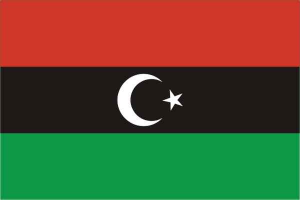Language/Libyan-arabic/Vocabulary/Health
Hi Libyan Arabic learners! 😊
In this lesson, we will learn the essential words and phrases related to health in Libyan Arabic. Health is vital, and as such, it is essential to know the vocabulary necessary to communicate any health issues effectively. In this lesson, we will cover topics such as body parts, common illnesses, and symptoms, among others.
Don't forget that to improve your Libyan Arabic Vocabulary, you can also use the Polyglot Club website. Find native speakers and ask them any questions.
Body Parts[edit | edit source]
Learning the names of the different body parts is essential when communicating any symptoms or discomfort.
| Libyan Arabic | Pronunciation | English |
|---|---|---|
| المخ | Almukh | Brain |
| العين | Al'ayn | Eye |
| الأذن | Al'udhn | Ear |
| الأنف | Alanf | Nose |
| الفم | Al-fam | Mouth |
| الأسنان | Al'asnān | Teeth |
| اللسان | Allisān | Tongue |
| الحنجرة | Alhanaǧrah | Throat |
| الجلد | Al-gild | Skin |
| الأطراف | Al'atraf | Limbs |
| اليد | Alyad | Hand |
| القدم | Al'qadam | Foot |
| البطن | Albaten | Stomach |
| الظهر | Alzahr | Back |
Dialogue: At the Doctor's
- Person 1: صباح الخير يا دكتور. لدي آلام في الظهر. (Good morning, doctor. I have back pain.)
- Person 2: صباح النور. اضطرابات العمود الفقري هي مشكلتك؟ (Good morning. Is the problem with your spine?)
- Person 1: نعم ، لدي آلام حادة في منطقة الظهر. (Yes, I have sharp pains in the back area.)
- Person 2: سأقوم بتشخيصك وأعطيك بعض الأدوية. (I will diagnose you and prescribe some medication.)
Illnesses and Symptoms[edit | edit source]
It is important to be able to describe any symptoms you are experiencing when talking to a doctor, pharmacist, or another healthcare professional.
| Libyan Arabic | Pronunciation | English |
|---|---|---|
| الإسهال | Al'islah | Diarrhea |
| الإمساك | Al'imsak | Constipation |
| الصداع | As-suda' | Headache |
| الأرق | Al'arq | Insomnia |
| سعال | Sa'āl | Cough |
| حمى | Ḥamā | Fever |
| تعب | Ta'b | Fatigue |
| ألم | Alm | Pain |
| غثيان | Ghuthyan | Nausea |
| تقيؤ | Taqyi'ů | Vomiting |
Dialogue: At the Pharmacy
- Person 1: مرحبا. أريد شراء دواء لسعالي. (Hello. I want to buy medicine for my cough.)
- Person 2: مرحبًا، هل لديك تحسس لبخاخ السعال؟ (Hello, do you have an allergy to cough spray?)
- Person 1: لا ، ليس لدي. (No, I don't.)
- Person 2: جرعة من هذا النوع من البخاخ. استخدم ثلاث مرات في اليوم. (A dose of this type of spray. Use three times daily.)
Medical Personnel[edit | edit source]
Knowing the appropriate vocabulary for medical professionals can also be helpful when seeking medical attention.
| Libyan Arabic | Pronunciation | English |
|---|---|---|
| الطبيب | Attbbib | Doctor |
| الممرض | Almumarrid | Nurse |
| الصيدلي | Assaydaly | Pharmacist |
| الجراح | Aljarrāh | Surgeon |
| الأخصائي | Al'akhassā'i | Specialist |
Dialogue: At the Hospital
- Person 1: انا بحاجة لمساعدة طبية. (I need medical help.)
- Person 2: يرجى الانتظار لحظة. سوف نستدعي الطبيب. (Please wait for a moment. We will call the doctor.)
- Person 1: شكرا جزيلا. (Thank you very much.)
- Person 2: لا تقلق, شخص ما سيأتي لمساعدتك قريبا. (Don't worry, someone will come to help you soon.)
Traditional Medicine[edit | edit source]
Traditional medicine is an essential part of the health care system in Libya that has been passed down for generations. It involves the use of natural remedies like herbs, plants, or organic substances in healing. Knowing the vocabulary associated with traditional medicine can be handy when using, buying or discussing it.
| Libyan Arabic | Pronunciation | English |
|---|---|---|
| الإجاص | Al'ijāş | Eucalyptus |
| القرنفل | Alqurnufal | Clove |
| الزعفران | Alza'frān | Saffron |
| الشمر | Alshimar | Fennel |
| الكركم | Al-karkum | Turmeric |
| الصوت | As-swat | Thyme |
| النعناع | Annana' | Mint |
| الزنجبيل | Alzanjabīl | Ginger |
| الكمون | Alkamūn | Cumin |
| الكزبرة | Al-'kadhibrat | Coriander |
Dialogue: Traditional Medicine
- Person 1: أريد بعض النصائح حول طرق العلاج الطبيعية. (I want some advice on natural remedies.)
- Person 2: يوجد العديد من الأساليب الطبيعية الفعالة. مثل شرب الشاي بالنعناع لتهدئة الأعصاب. (There are many effective natural methods, like drinking mint tea to soothe the nerves.)
- Person 1: ما هو النصيحة الطبية للاسترخاء الطبيعي؟ (What is the medical advice for natural relaxation?)
- Person 2: تناول الشاي باللافندر يساعد على الاسترخاء. (Drinking lavender tea helps with relaxation.)
➡ If you have any questions, please ask them in the comments section below.
➡ Feel free to edit this wiki page if you think it can be improved. 😎

